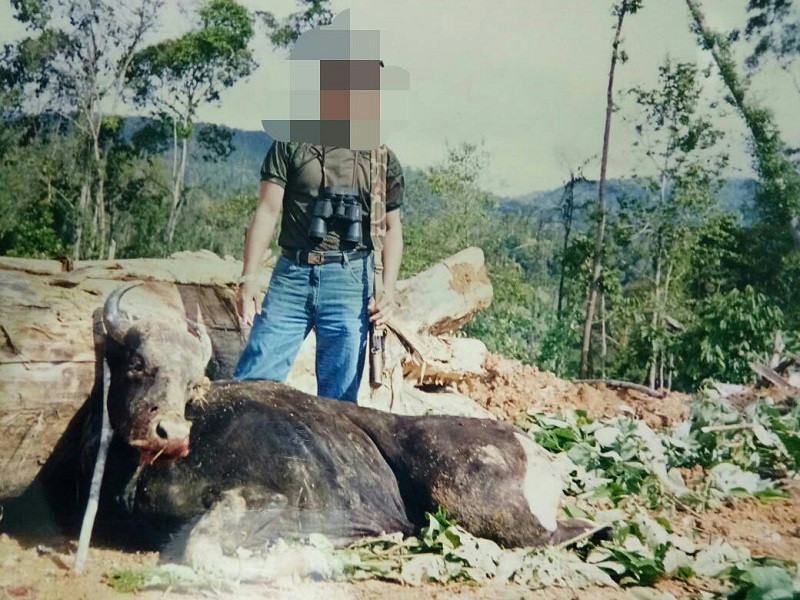KOTA KINABALU, NOV 30 — A senior plantation manager has been identified as a suspect behind one of three banteng killings last month, and of selling the meat for consumption in peninsular Malaysia.
Sabah Forestry Department director Datuk Sam Mannan said that the suspect was identified through photographs with a carcass of the wild cattle that is known locally as tembadau, an endangered and totally protected species in Sabah.
“We have identified more suspects within this industry. It cannot be anyone else, they belong to a certain ethnic group that we would not expect to be involved in this kind of hunting,” he said.
“We have focused in on one person, but this one person could lead us to so much more information. We will know soon, there will be a prosecution, he said.
Mannan said he could not reveal more as the case was still under investigation.
However, he rebuked the actions of poachers and said it was an “embarrassment” to the people with the Roundtable on Sustainable Palm Oil (RSPO).
“We had warned them that this was happening. The people in peninsular Malaysia like beef, and there is an emerging market of exotic meat; therefore, these banteng meat and payau or local deer, are in demand,” he said.
He was speaking at the Bornean Banteng International Workshop and Conference.
Mannan said they knew the hunters were not villagers who did so as part of their local customs, but outsiders who either killed for sport or trade. He also did not know if the guns used were licensed and registered.
Earlier, Danau Girang field centre director Benoit Goossens told the conference there were three banteng poaching incidents in three different protected areas here — Maliau Basin, Sipitang forest reserve and Tabin Wildlife reserve — in just three days.
“They were carrying sophisticated guns and were wearing proper gear, so you know they are city people,” he said.
He said since an estimated 70 per cent of poaching went unrecorded, this meant that as many as a dozen banteng may be killed each year.
“With only a population of fewer than 400, this (12) is a massive number. Many herds live in small pockets of isolation and they cannot afford to lose a single individual.
“At that rate of poaching, the species will not survive another 20 years and we will lose it like we lost our Sumatran rhinoceros,” he said.




















